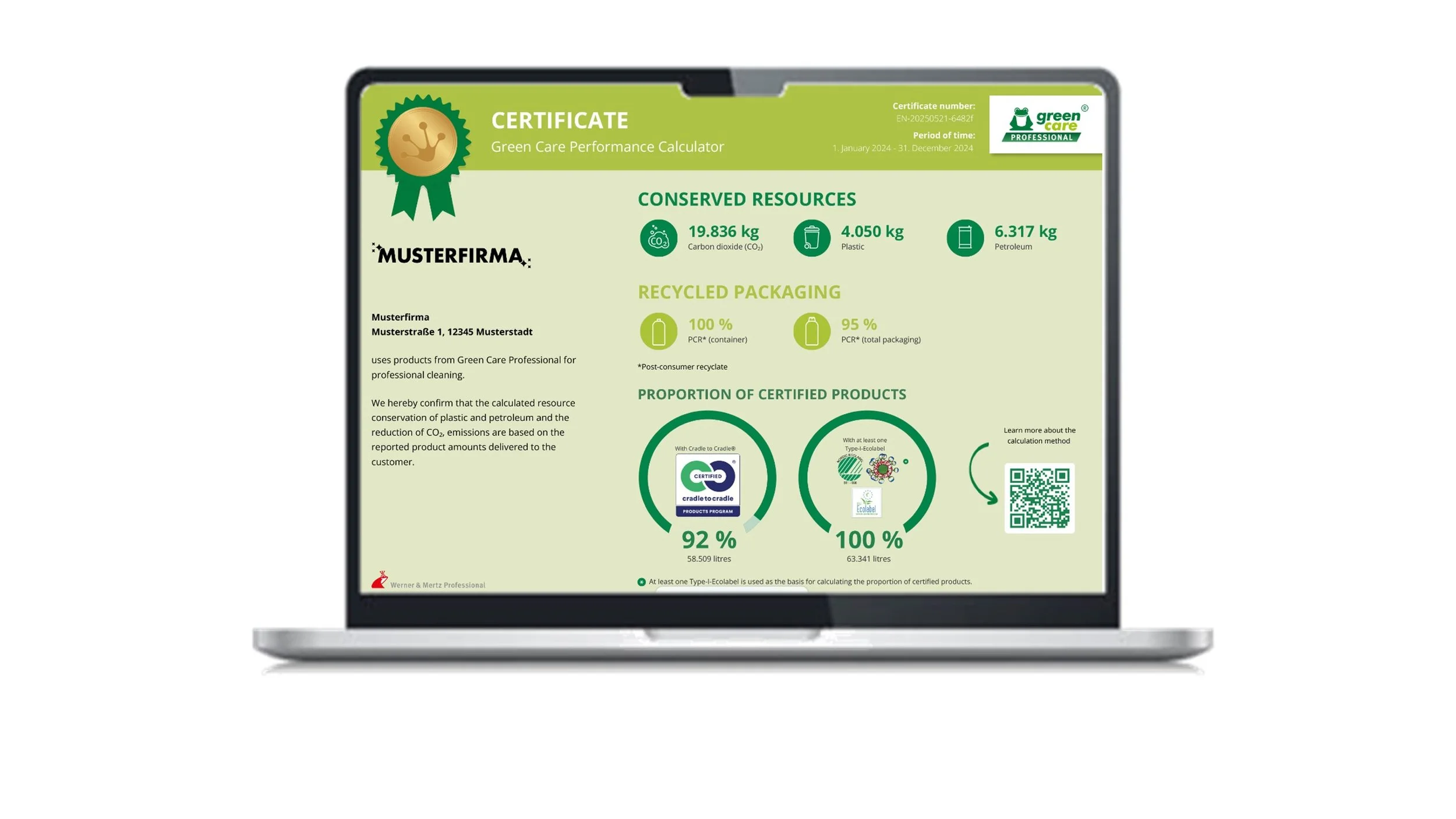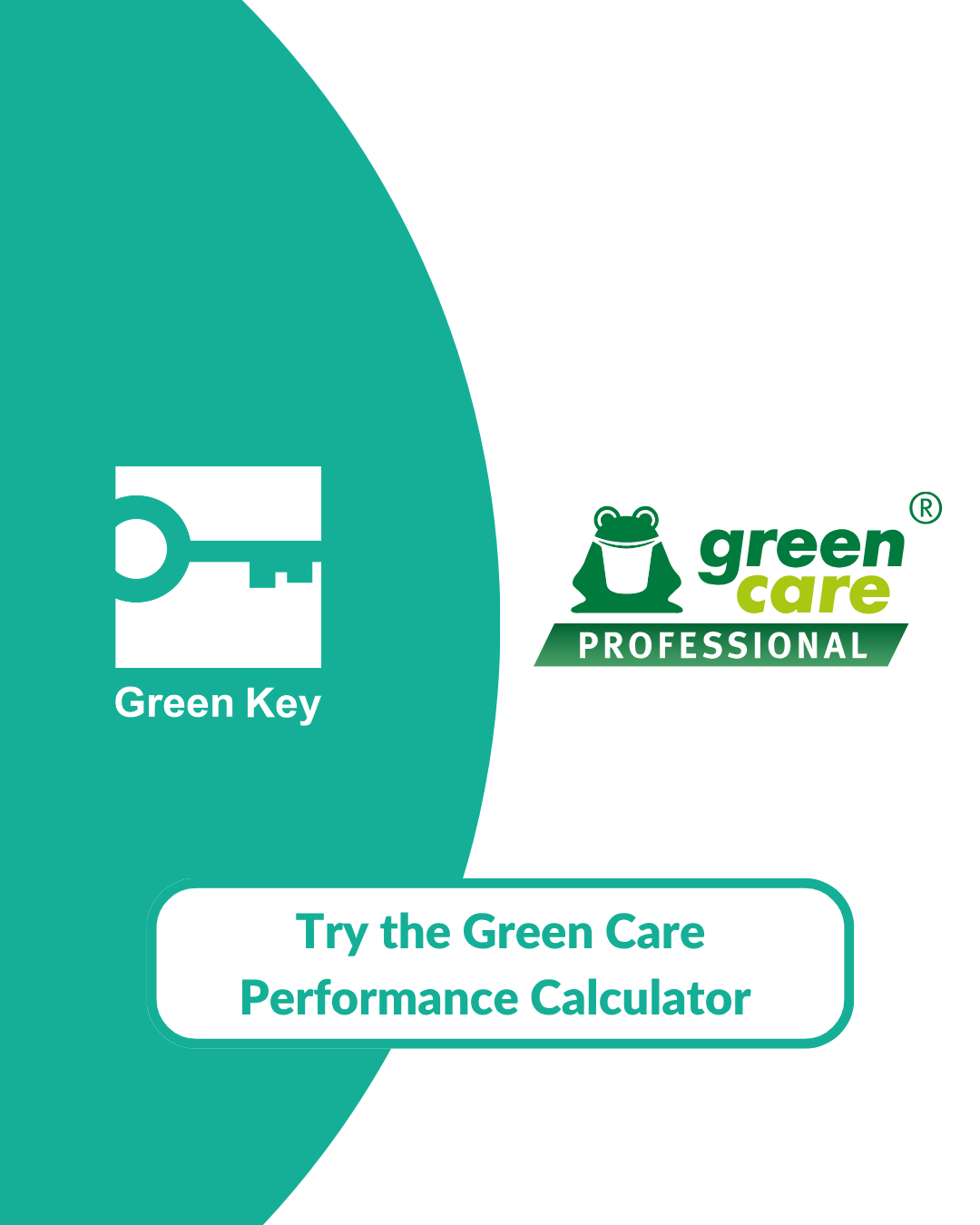At Green Key, we know that every step toward sustainability matters - and we’re proud to work alongside partners who turn commitment into measurable action. That’s why we’re highlighting the Green Care Performance Calculator from Werner & Mertz Professional, a trusted Green Key partner.
With the Green Care Performance Calculator, businesses can quantify their resource savings - specifically CO₂ emissions, crude oil, and plastic - achieved by switching to Green Care Professional products. The tool offers more than just numbers: it provides a certified, transparent foundation for sustainability claims, helping Green Key-certified establishments clearly demonstrate their commitment to environmental responsibility.
The tool produces a personalised certificate, complete with the user’s company logo, showcasing the verified environmental savings. This document is not only ideal for internal sustainability reporting but also enhances external communication - for example, in public tenders or green procurement processes that prioritise verified sustainable practices.
The latest version of the calculator includes two new indicators: the recyclate content of the container and the recyclate content of the entire packaging (including caps). These additions reflect a deeper commitment to the circular economy, aligning with Green Key’s own sustainability criteria.
“Our goal is to best prepare companies for the transition to a genuine circular economy,” says Thomas Ulbricht, Head of Werner & Mertz Professional. “With the Green Care Performance Calculator, we’re turning our sustainable product design into a competitive advantage - especially in the face of evolving regulatory landscapes.”
This shared vision aligns perfectly with Green Key’s mission to support accommodations and businesses that want to make credible, responsible choices for people and planet. The calculator’s methodology has been independently validated by INTECHNICA GmbH, ensuring a robust and reliable foundation for its results.
We encourage all Green Key-certified businesses - and those aspiring to certification - to explore the benefits of this tool. Use it to make your sustainability journey visible, back your actions with certified data, and strengthen your environmental credentials.
Learn more and start calculating your impact at:
www.green-care-professional.com/calculate-now

























